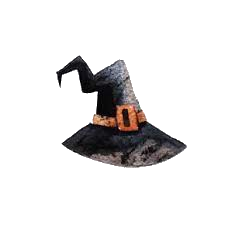Everyone was nice to each other and followed unwritten rules in communication. :)
Primitive search engines often allowed you to browse websites by topic. You could click on stuff like different music or film genres, specific movie or book titles, or celebrity names, and youd be presented with a list of all websites on that topic.
Since it was the early internet and everyone had multiple personal geocities or angelfire sites, you’d churn up pages upon pages of results for everything. Each search engine produced vastly different results, so you could waste a day on Alta Vista, then go to Excite and do it over again, finding a bunch of different stuff.
I’d spend hours opening websites for shitty (and some surprisingly excellent) bands from all over the world. A handful even went on to real life notoriety.
My biggest flex along those lines is I became a huge fan of AFI in 1992 or 1993 because there were some folks in California writing about the punk scene, and they came up a lot. Sometimes somebody would host 30 second .wav (.ra, maybe?) files recorded on a crappy tape recorder or something from a live show or local radio station. It was a cool time to be young and excited about music.
What I mostly remember is the sense of hard work and discovery.
In the mid-to-late 1990s, after the internet became a public phenomenon, but before it totally dominated our lives, spending time on the web felt very different than it does today. There was no publicly-accessible index of websites, search was in its infancy, and link aggregators as we know them today just didn’t exist. For the first time, you didn’t need to be a tech-savvy person to experience the WWW, but it was still pretty incomprehensible to most people, who didn’t understand what the internet was for.
New “homesteaders” developed websites on free hosts like GeoCities/Tripod/Angelfire; the former host organized itself into “neighbourhoods” of sites because we still thought about the internet as a physical space. Web rings served as pilgrimage routes that connected websites together, irrespective of domain or host, into self-selected communities. They organized around subjects/themes, like Lemmy communities, subreddits, hashtags, etc. are today. They emerged around the same time as public bulletin boards which, for people who were not familiar with BBS, were also a transformative technology, and also the source of life-changing memories.
I am so privileged to have been around to explore the early internet.
How everyone who knew how to had their own personal homepage.
I love https://www.cameronsworld.net/. I wish websites were still made like this.
What am I looking at here lmfao
Geocities circa 1998
My favorite one was the calculator that is fully functional, but also resets to boobs after a few seconds
My favourite memory is also one of my funniest.
When I first got my computer Hotmail was the e-mail of choice. Everyone had to have a Hotmail account, it let you use MSN Messenger!
I didn’t write down the spelling, and as a 12-13 year old I typed in “hot male dot com”
Coincidentally that was also one of the first times I realised I’m probably not straight.Configuring my UUCP connection to provide my BBS users with « electronic mail ».
- Newgrounds
- Homestar Runner
- AIM
- Yahoo chat rooms
- MUDs
- Not internet, but Leisure Suit Larry holds a special place in my memories.
Leisure Suit Larry
Ken sent me
It takes leather balls to play rugby
Lubbers
I wasn’t born back then, but it would have been the fact that search results weren’t total crap like today: only reddit seems to offer decent results if you don’t want sites like wikihow to come up… I wrote a more elaborate blogpost partly about it.
Search was such a crapshoot prior to Google, you’d have to try two or three search engines which all had very mixed results. Often it was easier to just ask someone a question on a forum if you had a tech problem. Early Google was a different beast, nothing else was as fast and direct for results.









